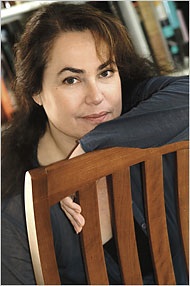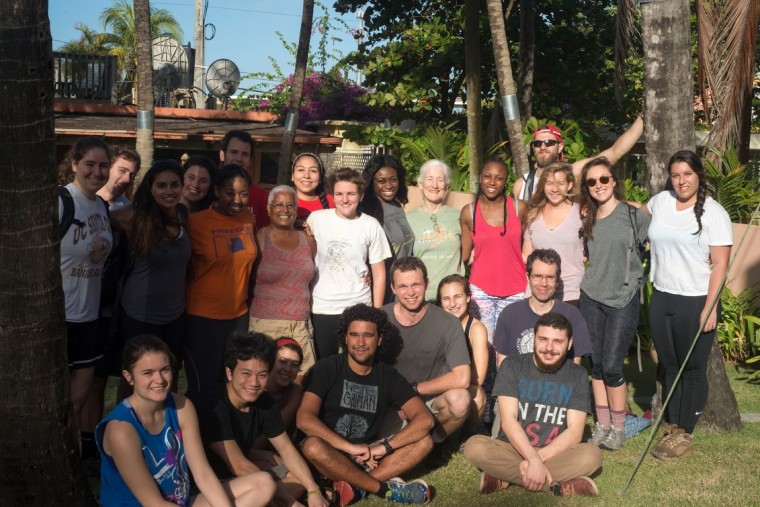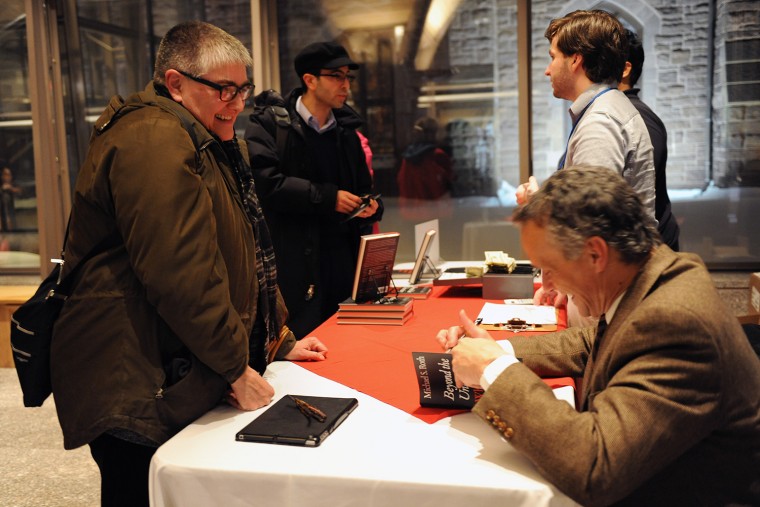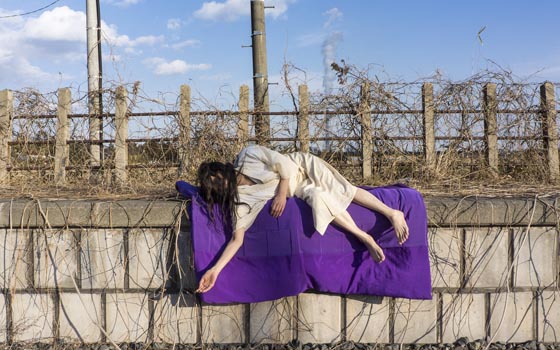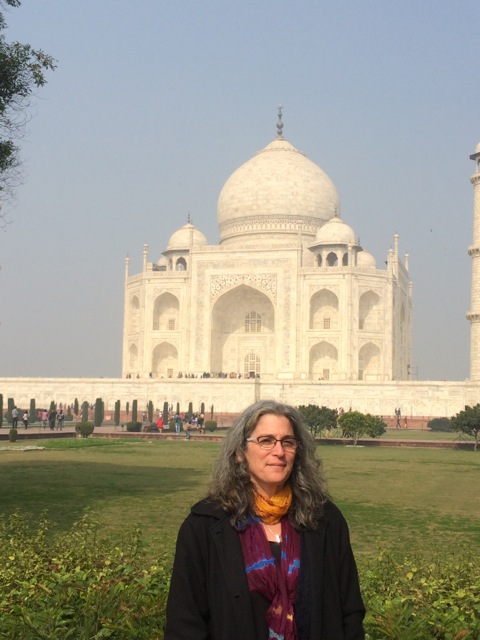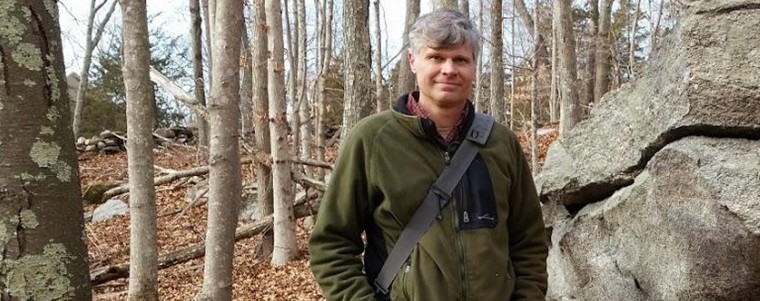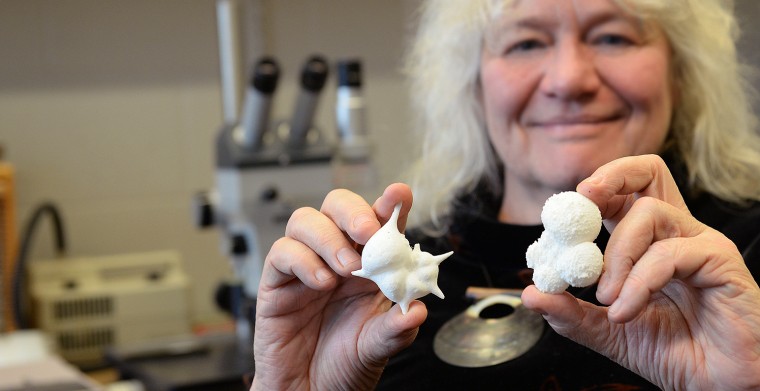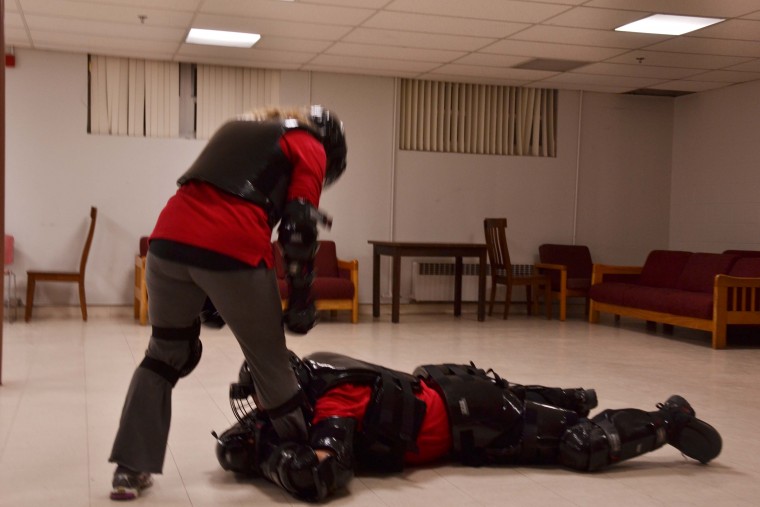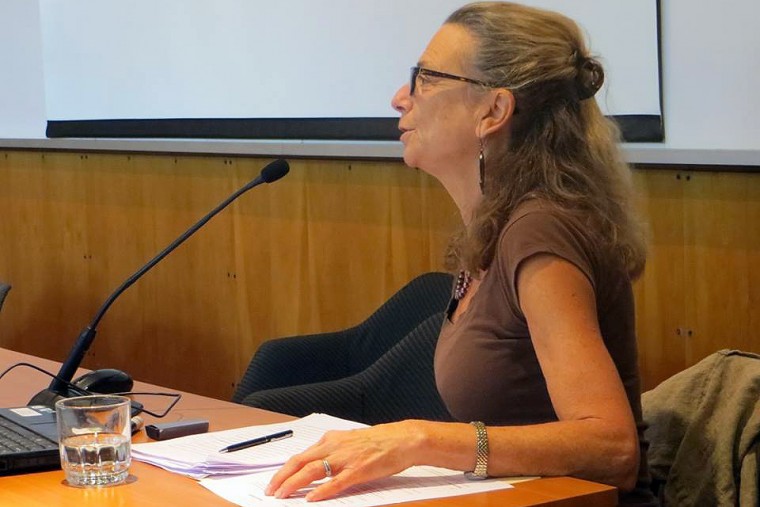Novelist Amy Bloom '75, the Distinguished University Writer-in-Residence, director of the Shapiro Center for Creative Writing, is co-hosting a new weekly podcast titled "Ethicists." The podcast, a re-imagination of the New York Times Magazine’s longtime “The Ethicist” column, features Bloom and two other ethicists answering questions for a half-hour. NYT Magazine Editor-in-Chief and Wesleyan alumnus Jake Silverstein '98 invited Bloom to participate in the show. The other panelists are Politico media columnist Jack Shafer and New York School of Law constitutional law professor Kenji Yoshino. The first episode, titled "Close Quarters: Can I ask my neighbors to quiet their baby?" debuted Feb. 18 and is produced…
This semester, 21 senior earth and environmental science majors in the Senior Field Research Project (EES 398) course traveled to Puerto Rico to develop their research, data collection, analytical and presentation skills. As part of the EES Department's capstone course sequence, students are required to participate in a series of student-designed research projects. From Jan. 12-19, students performed independent research in the field. "The overarching spirit is to have students participate in the full arc of a research project: from the design all the way to the presentation of the results," said Dana Royer, associate professor of earth and environmental sciences, associate professor…
#THISISWHY On Feb. 3, President Michael Roth gave a talk on “How to Destroy Liberal Education” in Memorial Chapel. Since the publication of his book, Beyond the University: Why Liberal Education Matters (Yale University Press, 2014), Roth has been speaking about liberal education to Wesleyan alumni and many others at various venues around the country. At this event, he spoke to students, staff and faculty about the relevance of the kind of education offered so compellingly at Wesleyan. A video and more photos of the event are below: (more…)
A Body in Fukushima, a series of color photographs and video presented in a groundbreaking exhibition across three Wesleyan galleries, is on display through April. The series is an exploration into the area around the Fukushima Daiichi Nuclear Power Plant, which destabilized and melted down after a magnitude 9.0 earthquake and tsunami in March 2011. The power plant released radioactive materials into the surrounding environment. In 2014, dancer-choreographer Eiko Otake and photographer/historian William Johnston followed abandoned train tracks through desolate stations into eerily vacant towns and fields in Fukushima, Japan. Otake is a visiting instructor in dance and Johnston is professor of history, professor of…
Lori Gruen, chair and professor of philosophy, was a distinguished guest speaker at the third Minding Animals Conference (MAC) in New Delhi, India on Dec. 7. Gruen also is professor of environmental studies, professor of feminist, gender and sexuality studies. During the conference, Gruen discussed "Entangled Empathy," which is the topic of her most recent book. Gruen notes "that we are already entangled in complex and life-altering relationships with other animals and argues for a version of empathy as a way of rethinking and practicing animal ethics." She also sat on a panel that discussed the state of the field of animal studies and led…
How do faculty help students, and themselves, thread a path through an ever-growing body of information? What practices can faculty and students find that enable them to bring a clear and sustained focus to their work in the classroom and the laboratory? Through two workshops and discussions, held Feb. 19, participants can consider how one might approach teaching from a contemplative perspective, in both the long and short term. Faculty and students will experiment with the adaptation of several traditional contemplative practices to classroom situations including “stilling” (breath and body awareness), contemplative writing, “beholding,” and explore how these might be instantiated in a classroom, laboratory or personal…
Phillip Resor, associate professor of earth and environmental sciences, was recently interviewed on WNPR about an amazing part of Connecticut's geological history. According to the story, several hundred million years ago, Connecticut was in the middle of a massive continental collision, which formed the super continent Pangea and pushed up huge mountains. Deep beneath the earth, a borderland beneath the two continents formed. Today, geologists call it the Lake Char fault system; it runs along the I-395 corridor in southeastern Connecticut. Resor took WNPR reporter Patrick Skahill to East Haddam by Gillette Castle to walk along the banks of the Connecticut River, and showed him fine black…
Wesleyan's Development Conference Committee will host its first conference, titled, "Creating a Better World: Perspectives on Local and International Development," on Feb. 21. It will feature talks by Paul Glewwe of the University of Minnesota, Vijay Prashad of Trinity College, and Cheryl Doss of Yale University. Wesleyan Associate Professor and Chair of Anthropology Anu Sharma will moderate a question and answer session. The conference will take place from 11:30 a.m. - 2:30 p.m. in Allbritton 311. No advanced registration is required. According to Chazelle Rhoden '15, who is co-organizing the conference with Sitar Terrass-Shah '17, the Development Conference Committee is a…
#THISISWHY Research Professor Ellen Thomas grasps a glass-enclosed sample of hundreds of microfossils, each a white fleck of limestone barely visible to the human eye. "The first time students look at these they say, 'they all look the same to me,' but in reality, they are all have very different shapes," Thomas says. "Even under a microscope, it can be difficult for a new eye to see the differences, but each species has its own shape; some have a much more open, light structure because they lived floating in the oceans close to the surface. Others have denser shells and lived on the bottom of the ocean,…
The meeting ran much later into the evening than usual, and you are walking back to your car alone. The parking lot is both dark and deserted. Suddenly a figure steps out of the shadows not five feet in front of you. What do you do? Thanks to a special training course on campus, a dozen members of the Wesleyan community have a new set of skills to use in both assessing and responding to threatening situations like the one described above. Rape Aggression Defense—or RAD—training, was recently offered to the university's female staff members, coordinated by Krystal-Gayle O’Neill, a residential life area coordinator. Lieutenant Jay Mantie was the lead…
Stray dogs are everywhere in Santiago, Chile. They lie on sidewalks, wander the parks, and even cross busy streets unaided. No one seems to mind; they’re just part of the culture. For Kari Weil, University Professor of Letters, they also were a striking reminder of the purpose of her recent trip to Santiago. At the invitation of the U.S. Embassy there, she visited the Pontificia Catholic University of Chile Jan. 6-9 to discuss current trends in American animal studies. Although academics have studied animals from various perspectives for a long time, animal studies as a cross-disciplinary field has come into its own…
Michael Whalen '83, who returned to his alma mater as head football coach and associate athletics director in 2010, has stepped down as head football coach, effective Feb. 1, to devote his full attention to his post as athletics director. He assumed that position in July 2012. Dan DiCenzo, who has been associate head football coach and defensive coordinator at Wesleyan the last five years, is taking over the head coaching position, succeeding Whalen. “Coach Whalen has dramatically improved Wesleyan’s football program,” said Wesleyan President Michael S. Roth, “and I am grateful for his remarkable service as coach. Now it’s…


